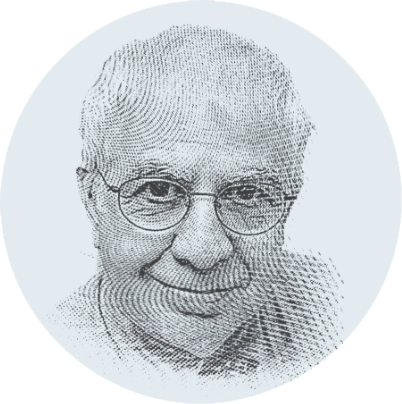The latest controversy over the BBC’s editing of a news clip to accuse US President Donald Trump of ordering an attack on the Capitol in Washington DC on 6 January 2021 reminded me of folkloric narrations of historic or mythological events in my childhood in Iran.
The show consisted of a screen which depicted the event with the tiny figure of a narrator in one corner biting a finger in awe or admiration.
The real narrator would tell the story without commenting let alone taking sides.
Did the British government have that model in mind when it created the BBC in 1922 with John Reith as director general?
That model was in contrast with Chaucer’s style in Canterbury Tales, a classic of English literature, in which the narrator unleashes a torrent of delightful and naughty comment.
Thus, was born the myth of the BBC as a paragon of cold clinical journalism whose aim was to inform the public by offering a smorgasbord of news, views, ideas and socio-politico-cultural options.
The problem is that there could never be cold clinical journalism except as a theoretical conceit. Journalism is produced and practiced by human beings not robots or what is now called Artificial Intelligence.
Even if one strictly sticks to the famous five Ws and one H, the order in which an event is reported and the tone used varies from one reporter to another. Being merely human the journalist cannot offer the kind of neutrality that the myth of BBC pretended to practice: Five minutes for Hitler and five minutes for the Jews!
Let us recall some facts.
The idea of an iron wall separating news from views is easy to imagine but hard to erect.
The BBC is a state-supervised and publicly funded organization with a charter that in theory at least cannot ignore the interests of His Majesty’s Government. Beyond that, it also reflects the mood of the political, economic, and cultural elite of the time.
For a good part of the BBC’s 103 years of existence that mood tended towards what is called the liberal right of British political culture.
J.B Priestley wartime BBC broadcasts may have had as much of a tonic effect on British public as Winston Churchill’s oratory.
With the war over, Priestly author of the brilliant play “An Inspector Calls” was shown the door because he was deemed a leftist.
Yet, what is remarkable is that the BBC in its various forms, local, national and international broadcasting, television and finally online reporting has managed to keep standards that remain the envy of media across the globe.
Its coverage of revolutions in Russia and China, World War II and wars in Korea, Indochina, Algeria, the Middle East and the Indian subcontinent, the founding of the League of Nations and the United Nations, the decolonization movement, the fall of empires remain amounts to a sterling chronicle of a chaotic century.
To be sure on occasions the BBC tethered on the edge of becoming a propaganda tool for government and/or predominant elites.
Nevertheless, it has been a tent large enough to host people from most shades of the political spectrum from the poet Louis MacNeice and novelist George Orwell to more recent great journalists such as John Freeman, incidentally the founder of the Panorama program in which Trump was recently libeled, David Dimbleby, Brian Redhead, Max Hastings , Andrew Niel, Matt Frei, Kate Adie , Lyse Doucet and the first woman broadcaster Elizabeth Cowell.
The BEEB has also produced a treasure trove of radio and TV plays, serials and documentaries.
Yet, for a number of reasons BBC’s standards have experienced a slow but steady deterioration for decades.
The first reason the “investigative journalism syndrome”.
It was initially created in 1972 when the Sunday Times exposed the damage that use of Thalidomide tablets did to unborn babies with facts fed to the paper by rivals of a pharmaceutical giant.
Two years later came the trans-Atlantic version when two “investigative” reporters helped topple a US president. There too there was no investigation but a leaking of information by President Richard Nixon’s political foes. Had “Deep Throat” who had a beef against Nixon not supplied the information the two heroes’ story would have had no meat.
Suddenly, every reporter wanted to be a giant-slayer of an investigator and a participant in creating events, not just reporting them.
Journalists started talking of writing a “story” rather than reporting “news”.
Another ailment that hit the profession was celberityzation of journalists.
The growing dominance of TV deepened that ailment as the BEEB put pictures of star reporters and presenters on T-shirts, mugs and keyrings.
That ended an old tradition of anonymity in British journalism that kept out the names of reporters by mentioning only “from our own correspondent” or “our political editor”.
Transformed into celebrities, some journalists became shallower and the shallower they got the more full of themselves they became.
The next step was to giftwrap arrogance as “challenging “or “adversarial” interviews which put the emphasis on rudeness of the interviewer rather than the frankness of the interviewee.
“Bravo, you roasted the president or the prime minister” became an accolade for a new breed of BBC journalists as stars with six figure salaries.
In the current cultural civil war in Western democracies, the BBC elite veer toward what the resurgent right calls wokeism. Thus, it is no surprise that Trump should be the BEEB’s latest bete-noire. It is also no surprise that it should side with any real or imaginary victim of “colonialism” “imperialism” “male chauvinism” and “white supremacy”, whatever those isms mean.
Today the BBC has hit a new low in terms of standards it advocated for decades.
The Panorama scandal shows that the BBC requires if not a complete checkup at least a once-over.
But we must be careful not to throw the BEEB out with the bathwater.
